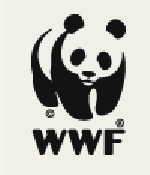HARIYO BAN PROGRAM : CALL FOR INTERNSHIP APPLICATIONS
WWF Nepal seek applications from qualified Nepali candidates for 13 Internships for Hariyo Ban Program.
The Internship Program is designed to build the technical capacity of existing and emerging technicians and leaders in the field of conservation, livelihoods, governance, climate adaptation, REDD+ and other project-related fields through more intensive mentoring and in-service training. An effort will be made to target young people, and ensure gender equity and access to individuals from all districts covered by the program.
Under the supervision of a mentor, the intern will be given an opportunity to learn about biodiversity conservation and sustainable development work that WWF does in Nepal. Through the internship, the intern will be able to relate their theoretical knowledge with a practical exposure in a working environment that will help them prepare for their future career in this field.
ELIGIBILITY:
All applicants should possess a recently acquired Bachelors or a higher degree in the field of Environmental Science/Management, Natural Resource Management or a related field as per the requirements.
Interested applicants are requested to download the Internship Application Form and send the same with an application to hr@wwfnepal.org byMarch 25, 2015. Please mention the Title of Internship you are applying as the subject of the e-mail.
You can download the detailed Learning Plans for all the internships along with the Internship Application Form.
Apply at hr@wwfnepal.org
Downlaod
Online Application Form for Internships
This Job is expired. The Company is no longer accepting applications for this position.
WWF is the world’s leading independent conservation organization originated from Switzerland in 1961 and currently running in more than 100 countries across 6 continents. The program started from conservation of wildlife to broader concept of building future where humans can live in harmony with nature. WWF has created 1,480 ecoregions that categorize the world into its natural ecosystems. Nepal with Bhutan, northeast India, southeast Tibet and northern Myanmar, falls under the Eastern Himalaya region housing the threatened species Snow Leopards, Bengal Tigers and One-horned Rhinos.
It was in 1967, WWF initiated WWF Nepal with a rhino conservation program in Chitwan. To keep up with the evolving face of conservation and environmental movement, WWF Nepal’s focus progressed from its localized efforts in conservation of single species in 1960s, integrated conservation and development approach in 1990s, to a new horizon of landscape level conservation encompassing national, regional and global scales of complexity in early 2000s.
